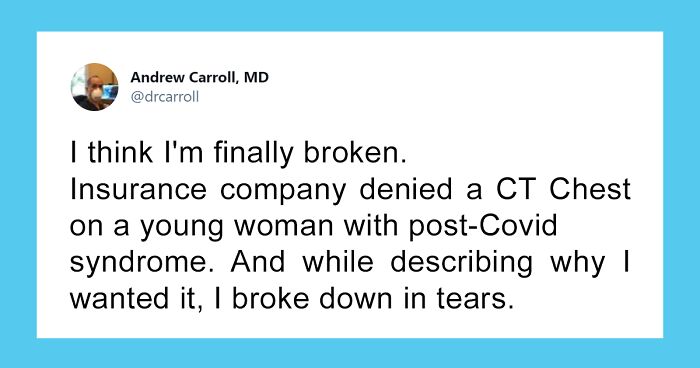
US Doctor Shares How US Health Insurance Companies Shamelessly Screw People Over
Interview With AuthorHealth insurance is a sore topic for many Americans. It’s an issue that’s been particularly prominent in the midst of the Covid-19 pandemic and is unlikely to be solved any time soon.
The frustration over the sometimes-inhumane system, complicated rules, and the huge costs for the average American has reached the boiling point for some, including for Dr. Andrew Carroll. The Arizona-based doctor shared how he broke down crying when an “insurance company denied a CT Chest on a young woman with post-Covid syndrome.” Other Americans, healthcare professionals and ordinary folks alike, are also opening about their negative experiences with health insurance and it is heartbreaking to read.
Dr. Carroll told Bored Panda that “unfortunately in the US, since the insurance company is the payer for a patient’s care, they are heavily involved in the provision of that care. Their job is not to pay for healthcare but avoid paying for healthcare. It is a terrible system.”
More info: Twitter | DrCarroll.com
Dr. Carroll opened up about how he was brought to tears while talking to a health insurance company
Image credits: drcarroll
“We are trained very early, almost like soldiers, to work hard and long hours, deal with extremely stressful conditions, and work through the emotional turmoil of death, debility, and the effect those things have on the patient and their families,” Dr. Carroll revealed the type of stress that healthcare workers are taught to deal with on a daily basis.
“I love what I do because I could not see myself doing anything else. I’ve wanted to be a doctor since I was 5, since I myself had a major medical issue. I remember the care and compassion my doctors when I was that age showed me, and helped me get through my very tough time. I wanted to do that for others, and so far I think I have done so. Insurance companies make it difficult though, and nearly force cold, inhumane, and compassionless rules on patients when they are most vulnerable,” the doctor shared what keeps him passionate about helping others despite the challenges the job presents.
Dr. Carroll also pointed out that he and his colleagues are starting to see more and more cases of post-Covid syndrome. “We are only beginning to understand these post-infectious manifestations. Post-Covid encephalopathy (‘Brain Fog’) is only just beginning to be understood. Cardiomyopathy (heart disease) is being seen in many younger people. My guess is that because if it is experienced by an older person, it probably kills them in the course of the illness.”
Higher costs don’t always lead to better care
The fact remains that the US spends a huge amount of money on its healthcare, however, the prices remain high for Americans because around a quarter of the costs are administrative. Meanwhile, the complexity of the system leads to further increased costs because of how inefficient things are. The system needs to change. Fast.
Furthermore, according to Investopedia, American hospitals are consolidated which leads to a lack of competition.
But change won’t happen quickly. Changes to such massive systems take years—if not decades—of slow overhaul that first and foremost requires having the political clout to convince the top players that change needs to happen. What incentives (aside from the ethical ones, of course) do insurance companies have to change the rules of the game?
After somebody shared the doctor’s tweet on Facebook, people started talking about their own experiences
Dr. Carroll’s Twitter thread reached a lot of people. At the time of writing, his post was retweeted around 20k times and received more than 101k likes. But the biggest victory was getting people to open up and share their stories. Some of them hit you so hard, you start wondering why patients are being treated less like human beings (or even customers) and more like inconveniences.
The World Health Organization ranks the US healthcare system as the 37th best in the world. A far cry from the desire to be the best at everything, wouldn’t you say? While the US is home to wonderful doctors, specialists, and treatment facilities, not everyone is privy to high-quality treatment just because they pay high prices.
The Peter G. Peterson Foundation explains that the US spends a larger part of its national income on healthcare than any other OECD country. While healthcare spending stayed at around 8.6 percent of developed nations’ GDP last decade, spending in the US rose from 16.3 to 17 percent of its GDP.
There’s also a huge gap between healthcare spending per person. In the US in 2019, healthcare costs were around 11k dollars per person. In second place among OECD countries was Switzerland with 7.7k dollars per person. Germany is in third place with 6.6k dollars; whereas the wealthy country average was around 5.5k dollars.
Think about the kind of care you get in Switzerland and Germany and if many doctors would have to cry while on the phone with insurance companies there. Clearly, throwing more money at a sector doesn’t always lead to better outcomes.
Meanwhile, here’s what professionals and ordinary Americans alike said on Twitter
Image credits: DrDooleyMD
Image credits: drcarroll
Image credits: DotarSojat429
Image credits: sarahcarrato
Image credits: drcarroll
Image credits: drcarroll
Image credits: CarmenShier
Image credits: JimVBrook
Image credits: dremilyportermd
Image credits: drcarroll
Image credits: Suburbanbella
Image credits: drcarroll
Image credits: dhanchard
Image credits: drcarroll
Unfortunately, no matter how much we repeat that all Americans should be equal doesn’t change the fact that they aren’t equal (far from it!) in the eyes of the healthcare system. The Center for American Progress points out that where you live affects the average wait times to see a doctor. What’s more, the type of insurance coverage you have—whether private or public—also affects wait times.
The New York Times mentions how a study found that around 20 to 25 percent of all US healthcare spending was wasteful. That amounts to 760 billion dollars that are lost each year. And the saddest part is—this can be avoided. Even though you’ll never have a ‘perfectly’ efficient system without any waste, you can cut back to reduce it. A quarter of funds going to waste is heart-rending.
In an earlier interview with Bored Panda, Tumblr user Avilociraptor opened up about their thoughts on the healthcare system; even though they had a ‘top-tier’ insurance plan, they were subject to very long waiting times to see a doctor. They explained how it’s not just the patients but also the doctors and nurses who are feeling the brunt of the inefficient, inhumane system.
According to them, the private insurance model has “destroyed the doctor-patient relationship by strangling the autonomy of both patients and providers.” They said: “Nurses are overworked and underpaid, and yet we demonize them when they strike to provide safer conditions for themselves and their patients.”
Avilociraptor suggested that real change will only happen if they “regularly write” to their government representatives, sharing their stories and demanding change. In other words, appealing to elected officials is your best bet to affect the entire system.
55Kviews
Share on FacebookAs long as politicians keep pushing their idiotic beliefs that universal healthcare is not sustainable and bad and socialist and basically the final step to communism, nothing will change in the US. The healthcare system is founded on greed and profit, instead of care. That's why insurers, instead of doctors, decide what treatment patients get. And as a result people die because they get the necessary treatment too late or not at all.
Pre pandemic I would fly to the US weekly as a flight attendant from Australia. The hotel manager in Dallas had terminal cancer and had to continue working to get her insurance benefits!! What?? Meanwhile, I have a colonoscopy scheduled next week and will not have to pay a cent. My sick leave will cover my wage and my taxes will cover my hospital bill. Zero stress.
Load More Replies...let me see how much USA put in their military funding again? i guess it,s cheaper to send poor people to get kill far away than treated them correctly.
The money to cover adequate health insurance is already being paid into the private health insurance industry by US workers and their employers. It's not like the US government would even have to take away from the exorbitant military spending to cover it. Since we essentially have legalized political bribery in the US, the insurance companies and other large healthcare corporations are allowed to rake in obscene profits by denying us care. The government actually comes out a loser on this, too. The private insurance companies get our money throughout our working lives, then when we're older or disabled (and generally at our most expensive0, Medicare (our government program) has to pay out, rather than having us pay out whole lives into one risk pool. It's all a giveaway to the powerful corporations that can afford to buy politicians. Our per capita health care costs are twice that of similar industrialized countries with national health care. That money is not going into our care.
Load More Replies...As long as politicians keep pushing their idiotic beliefs that universal healthcare is not sustainable and bad and socialist and basically the final step to communism, nothing will change in the US. The healthcare system is founded on greed and profit, instead of care. That's why insurers, instead of doctors, decide what treatment patients get. And as a result people die because they get the necessary treatment too late or not at all.
Pre pandemic I would fly to the US weekly as a flight attendant from Australia. The hotel manager in Dallas had terminal cancer and had to continue working to get her insurance benefits!! What?? Meanwhile, I have a colonoscopy scheduled next week and will not have to pay a cent. My sick leave will cover my wage and my taxes will cover my hospital bill. Zero stress.
Load More Replies...let me see how much USA put in their military funding again? i guess it,s cheaper to send poor people to get kill far away than treated them correctly.
The money to cover adequate health insurance is already being paid into the private health insurance industry by US workers and their employers. It's not like the US government would even have to take away from the exorbitant military spending to cover it. Since we essentially have legalized political bribery in the US, the insurance companies and other large healthcare corporations are allowed to rake in obscene profits by denying us care. The government actually comes out a loser on this, too. The private insurance companies get our money throughout our working lives, then when we're older or disabled (and generally at our most expensive0, Medicare (our government program) has to pay out, rather than having us pay out whole lives into one risk pool. It's all a giveaway to the powerful corporations that can afford to buy politicians. Our per capita health care costs are twice that of similar industrialized countries with national health care. That money is not going into our care.
Load More Replies...
 Dark Mode
Dark Mode 

 No fees, cancel anytime
No fees, cancel anytime 


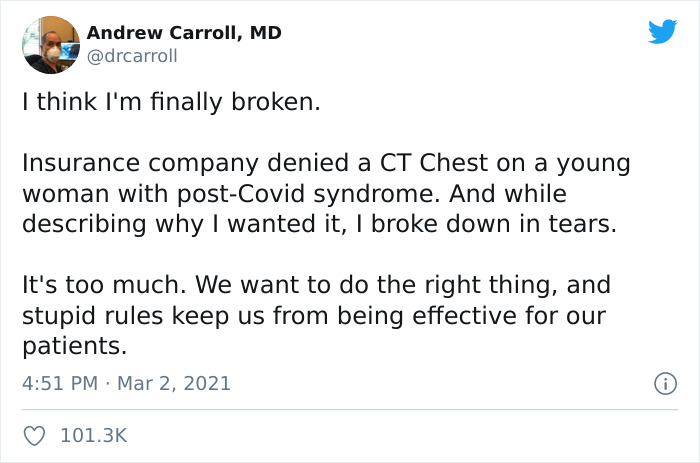
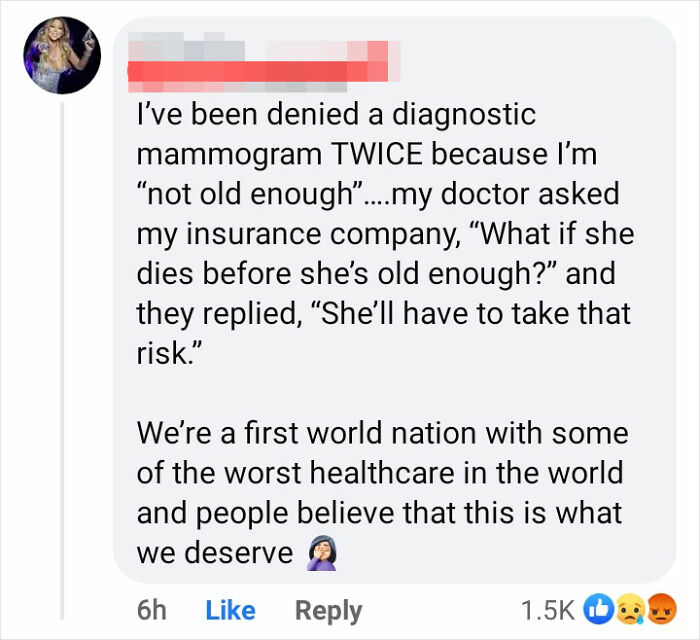
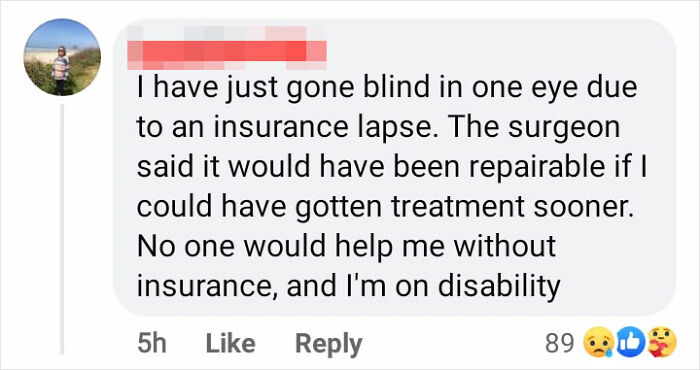
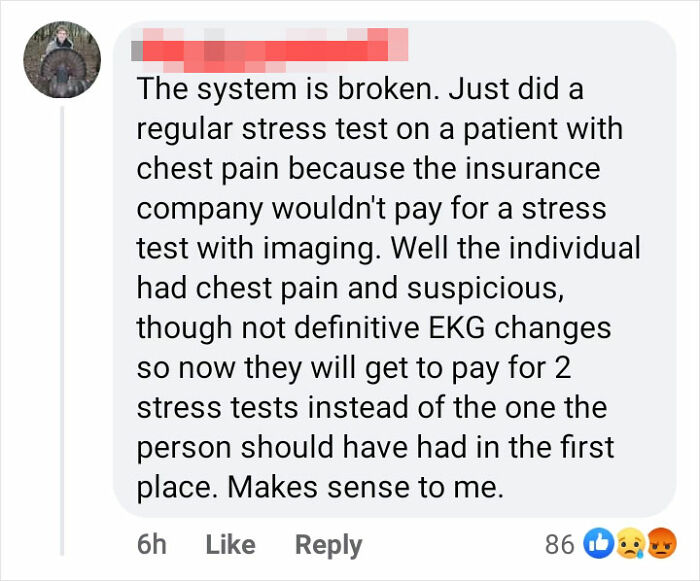
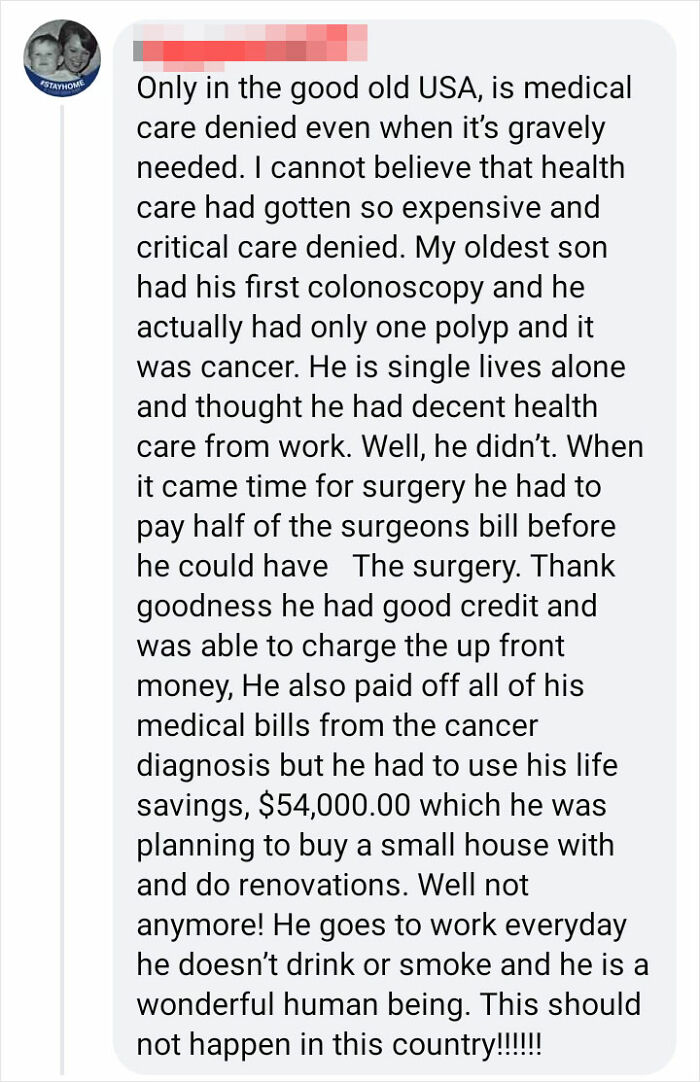

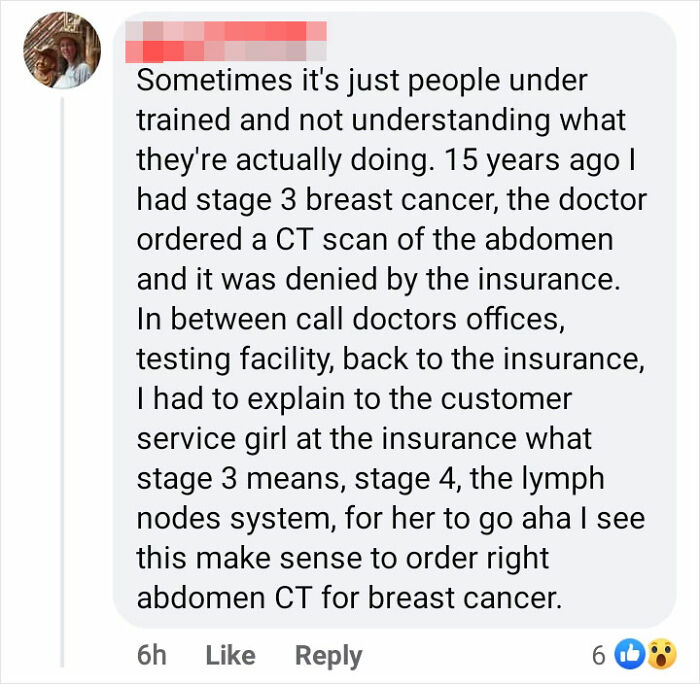
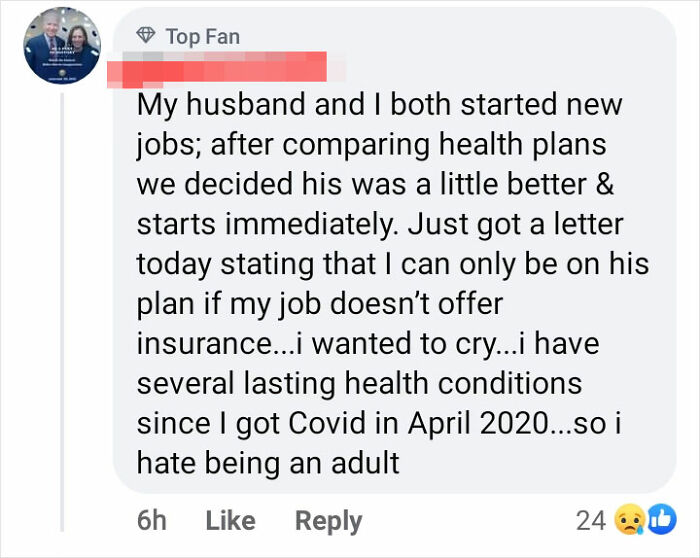
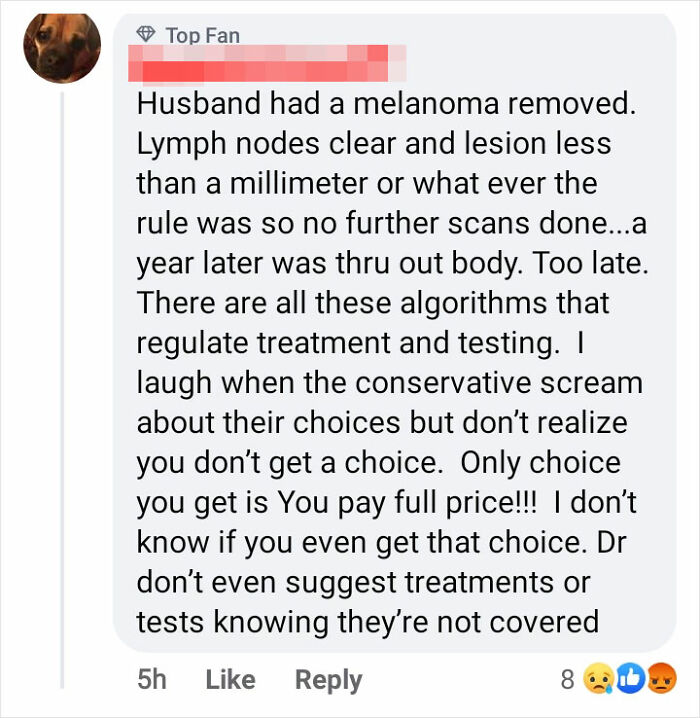
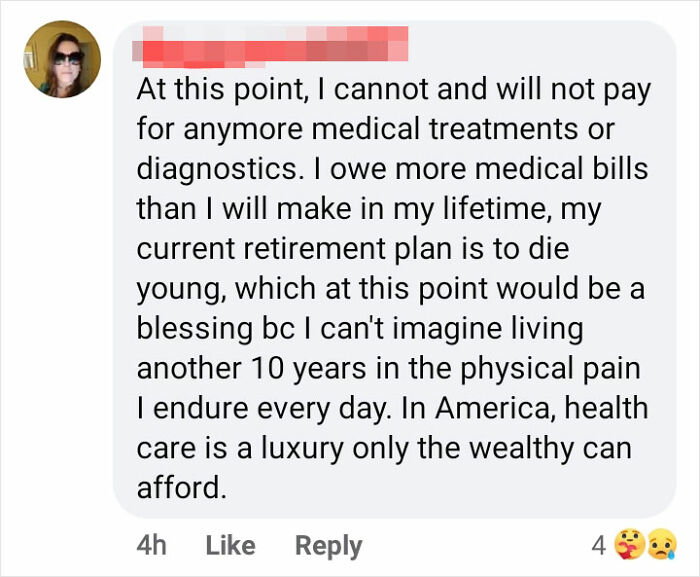

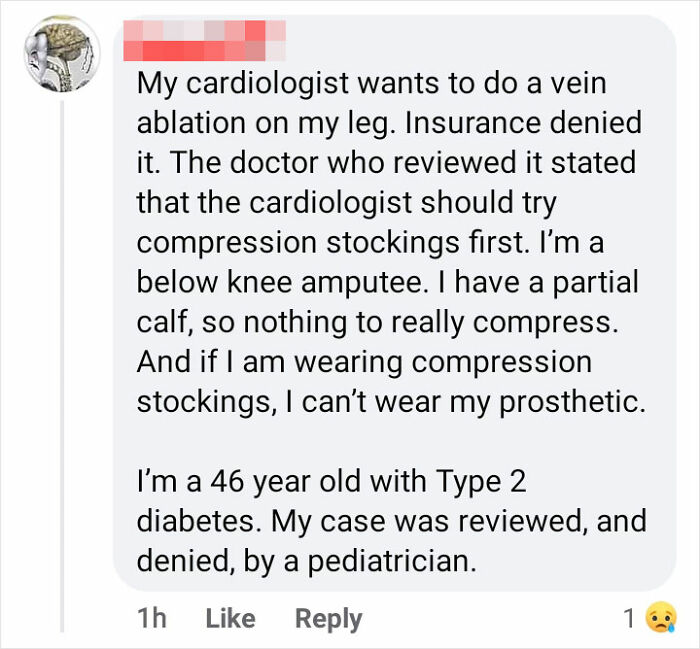
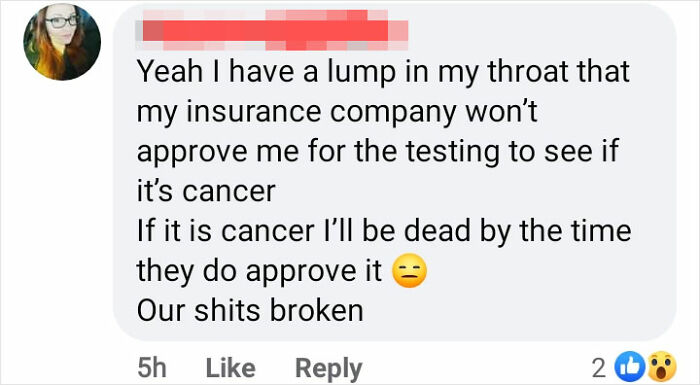
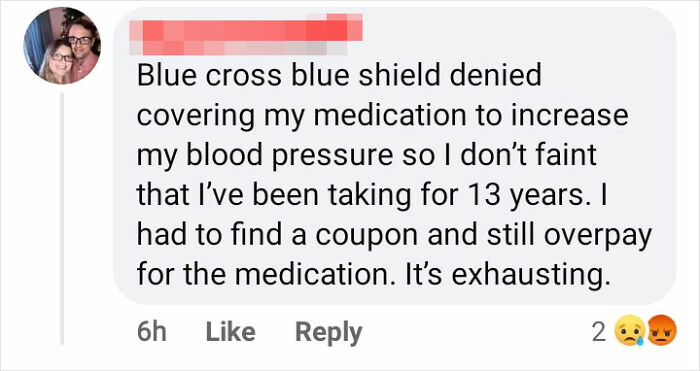
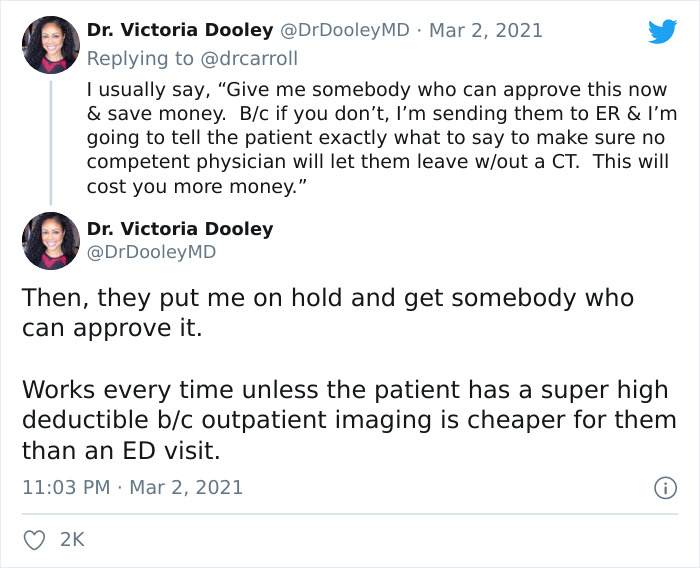

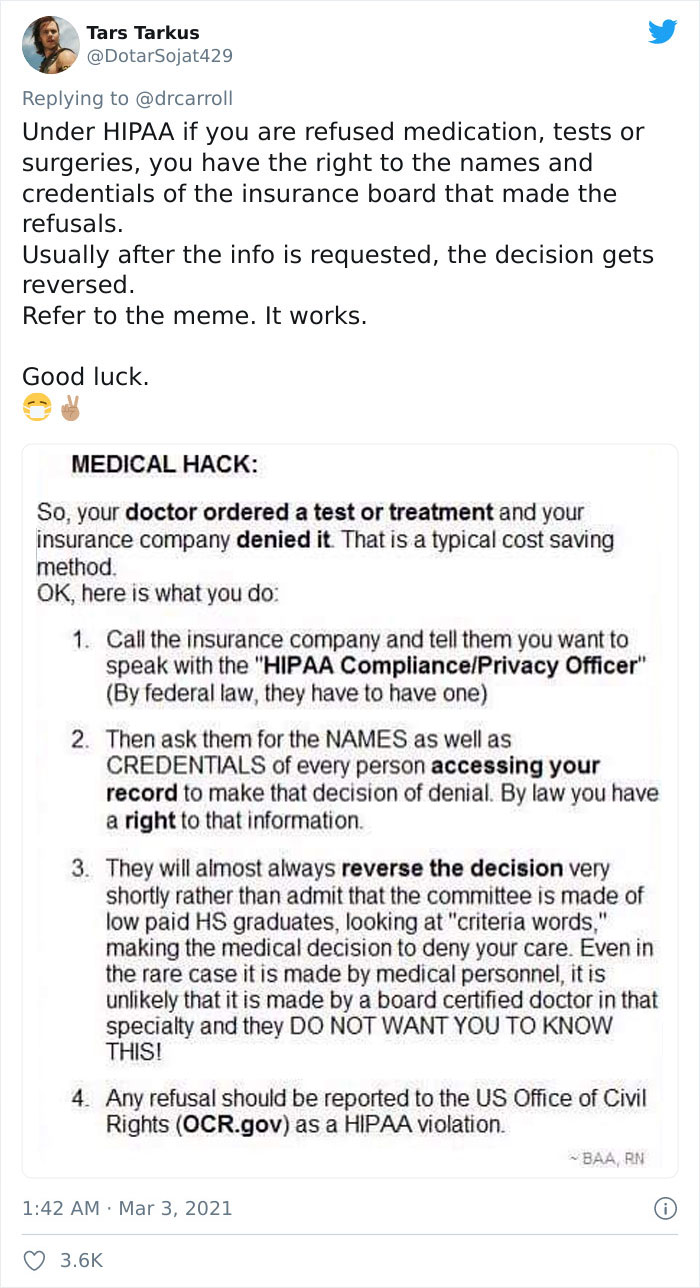
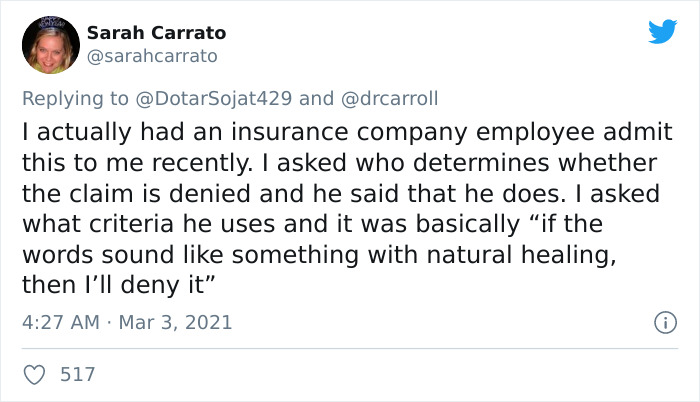
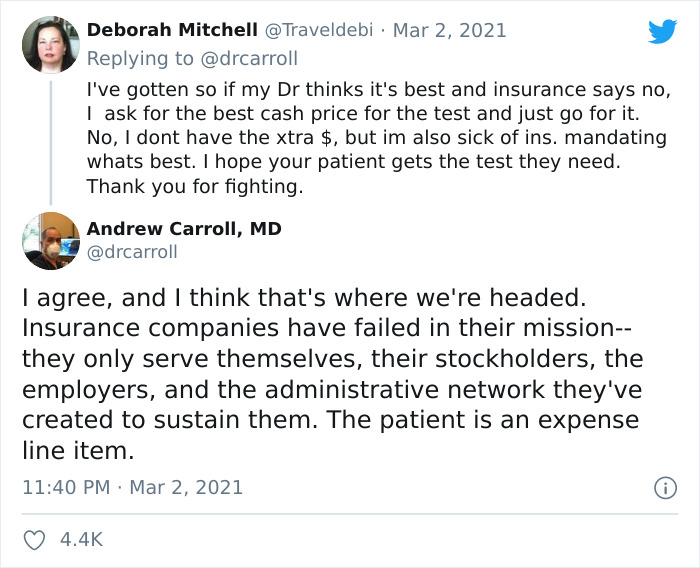
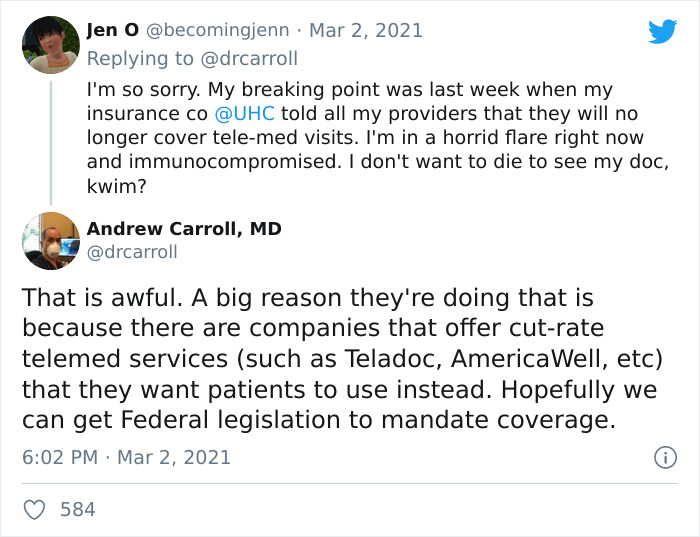
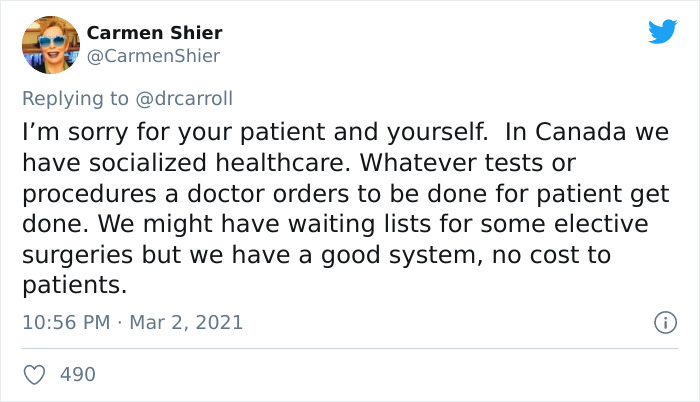
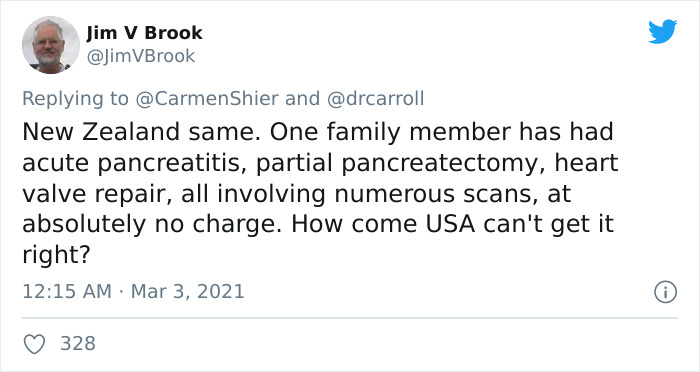
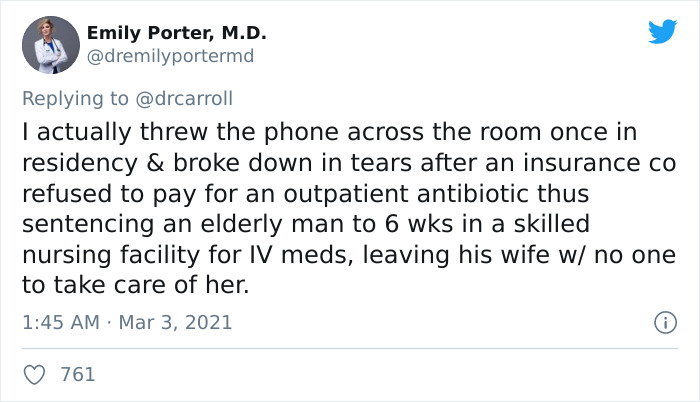
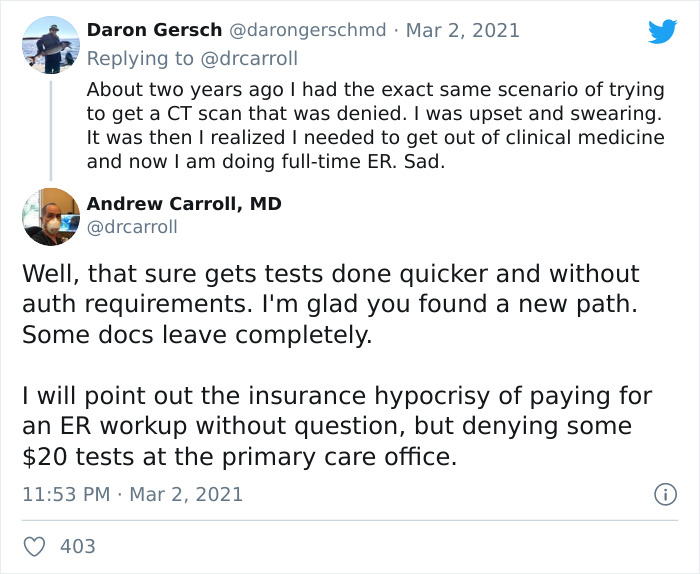
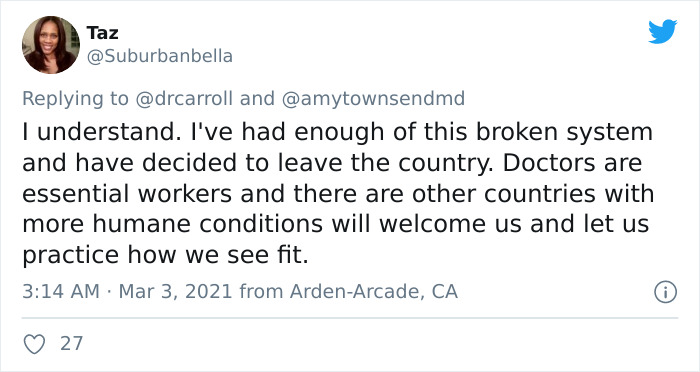
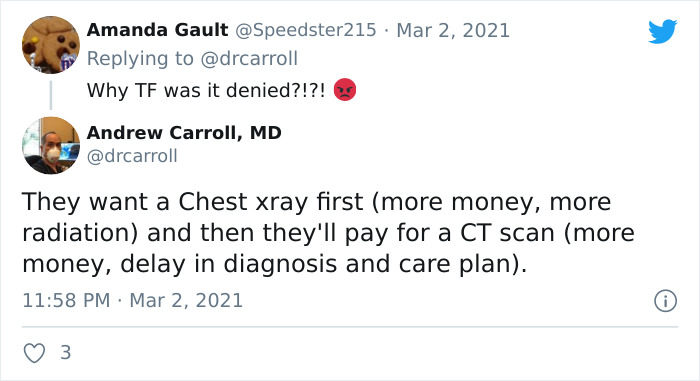
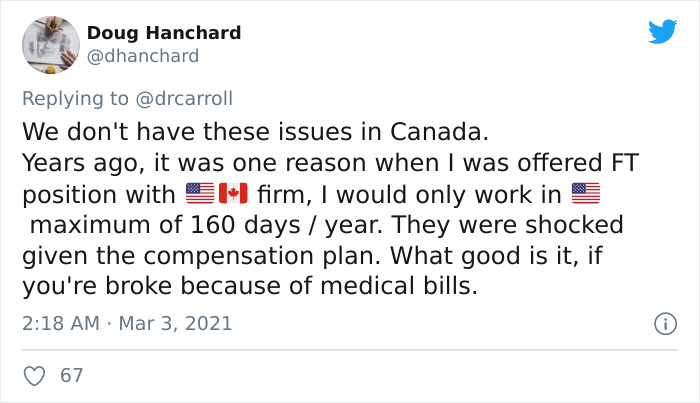
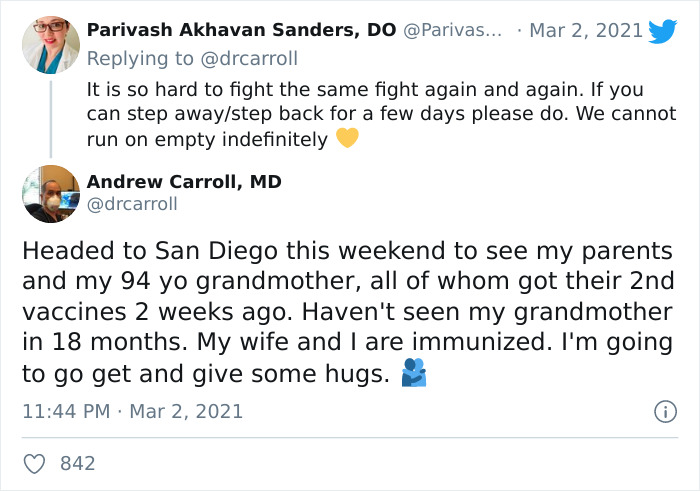































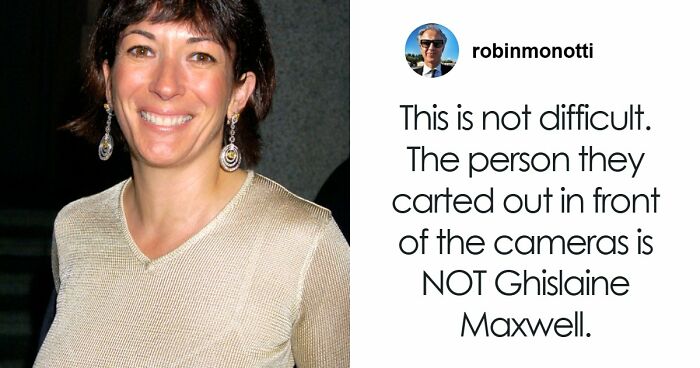












151
95